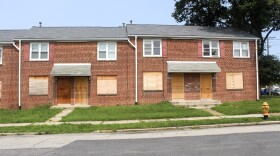Members of the state House and Senate Housing committees convened to hear from authors of several new reports on the current state of Delaware’s housing needs.
Among them was Chief of the Delaware Division of Public Health’s Bureau of Health Equity Sequoia Rent, who presented data from a survey of Delaware’s most vulnerable neighborhoods.
The findings show Sussex County has the highest county percentage of crowded households at 18.5%, meaning households with 1.01 or more people per bedroom – Kent County sits close to 8% and New Castle County sits just under 12%.
Additionally, 16.4% of Sussex County homeowners surveyed are concerned about losing their home, compared to 7.6% in New Castle County and 9.4% in Kent County – but Rent says housing affordability is a statewide issue.
“About 59% of Delaware renters cannot afford the fair market rate of a two-bedroom rental while working 40 hours per week," she said. "Renting households that spend more than 30% of their income on rent and utilities are considered cost burdened, and 46% of Delaware renters are considered cost burdened."
The Division of Public Health plans to release the full State Health Assessment report next year.
Homelessness was another big topic of conversation at the hearing.
Housing Alliance Delaware executive director Rachel Stucker presented data on homelessness in the state, noting more than 1,300 people are homeless each night, and 1 in 4 are under the age of 18.
Both Rent and Stucker presented data showing how homelessness disproportionally impacts Black families.
The State Health Assessment preview states in the 2020-2021 school year, 2,576 Delaware students experienced homelessness, and Black students made up 54.7% of the homeless enrolled student population. Rent also notes LGBTQ+ youth are more likely to experience homelessness in a single year than youth who are heterosexual or cisgender.
Housing Alliance Delaware data shows 22% of Delaware's population is Black/African American and 60% of people experiencing homelessness are Black/African American.
Stucker stresses that housing costs drive homelessness levels, even more so than community indicators like poverty, substance abuse or mental health problems.
"Places that have high levels of poverty don't necessarily have high levels of homelessness. Philadelphia is a great example of that — our neighbor. Philadelphia has a very high poverty rate — one of the highest in the nation for large cities — actually has a very low rate of homelessness comparatively to other large urban areas because of its housing stock."
As for potential solutions, Stucker recommends establishing a statewide housing trust fund for affordable housing production, requiring property owners to equally consider voucher holders for open units and statewide action on land use and zoning.
Delaware State Housing Authority (DSHA) Chief Strategy Advisor Caitlin Del Collo says housing diversity can help with more affordable living costs as well.
The DSHA Housing Needs Assessment found building permits indicate a continuing trend of developing single-family detached homes, which are unaffordable for many Delawareans.
Del Collo says the data shows Delawareans generally support more diverse housing types, like duplexes, triplexes or single family attached homes, if they are more affordable to live in.
Committee members began discussing potential ways to incentivize more affordable housing developments at the end of the hearing.
No legislation was introduced at the hearing, but legislators are working on potential bills to introduce for the upcoming session starting in January.





